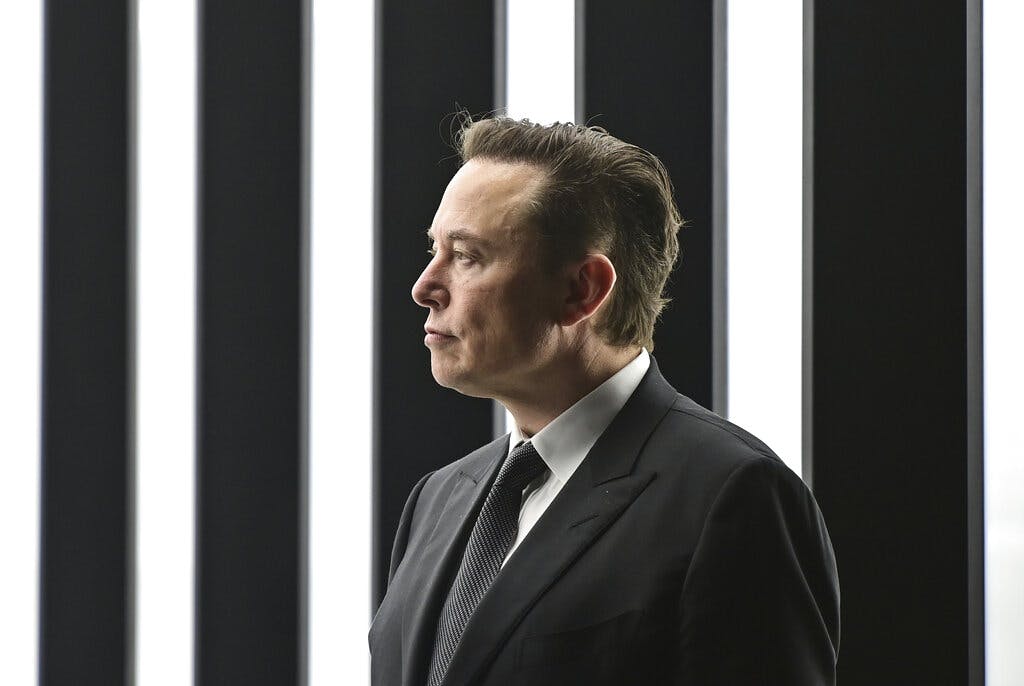Conservative Judges on D.C. Circuit, in a Rousing Dissent, Side With Trump and Musk Against Jack Smith
Their defense of the prerogatives of the presidency could preview a showdown at the Supreme Court.

The conservative judges on the District of Columbia appeals circuit all dissented from the decision to force President Trump and X, formerly known as Twitter, to turn over materials from Mr. Trump’s social media account, warning that, in respect of constitutional privileges, “not every wolf comes as a wolf.”
That is an allusion to Justice Antonin Scalia’s memorable metaphor warning about the erosion of the office of the presidency. Today’s quotation comes in a statement accompanying the D.C. Circuit’s denial of an en banc hearing sought by Mr. Trump, who was blocked by the Democratic majority on the court.
This rousing defense of the presidency — issued as the same circuit is set to release a decision on Mr. Trump’s claim of “absolute immunity” — is authored by Judge Neomi Rao, a rising star of the appellate bench, and joined by Karen Henderson, Gregory Katsas, and Justin Walker.
The petition for a rehearing is prompted by one of Special Counsel Jack Smith’s coups in this case, when he obtained a search warrant for Mr. Trump’s Twitter/X account and an accompanying nondisclosure order banning the social media company from telling Mr. Trump that it had been ordered to turn over the entirety of Mr. Trump’s archive. A panel of the circuit upheld that ruling.
The conservatives, lining up behind Judge Reo’s pen, castigate the district and appellate courts for allowing this “arrangement without any consideration of the consequential executive privilege issues raised by this unprecedented search.” For the first time in history, she writes, a “court allowed access to presidential communications before any scrutiny of executive privilege.”
Underscoring the stakes of what she calls a “gambit,” Judge Rao observes that the case turns “on the First Amendment rights of a social media company, but looming in the background are consequential and novel questions about executive privilege.” These questions in turn implicate the “balance of power between the President, Congress, and the courts.”
Judge Rao acknowledges that the court’s options are limited because Mr. Trump did not himself raise an executive privilege argument when the case was first heard. Both the 45th president and the social media owned by Elon Musk advanced First Amendment arguments — those failed — but not the position that the presidency protected his draft and direct messages.
Mr. Smith, in act of prosecutorial savvy, abjured asking the National Archives for Mr. Trump’s records, instead going directly to the company then known as Twitter. The special counsel admitted that he took this approach because addressing himself to the archives directly “would trigger notice to the former President under” the Presidential Records Act.
Judge Rao marvels that the “material produced by Twitter included several dozen direct messages written by a sitting President,” records that would appear to fall in the heartland of presidential protection. The Supreme Court has held that executive privilege “derives from the supremacy of the Executive Branch within its assigned area of constitutional responsibilities.”
Mr. Trump’s lawyers will likely perk up to Judge Reo’s declaration that it is “well established” that executive privilege “extends beyond a President’s time in office.” His ability to avoid prison on charges of working to overturn the 2020 election and storing classified documents at Mar-a-Lago could turn on how far he can stretch those protections.
At America’s dawn, Chief Justice Marshall, in a trial involving Vice President Burr and President Jefferson, wrote that in “no case of this kind would a court be required to proceed against the president as against an ordinary individual.” That spirit, Judge Rao wrote, is violated by, in this case, the “court-ordered disclosure of presidential communications without notice to the President.”
The accusation that Mr. Smith performed an “end-run around executive privilege” because Mr. Trump was “not given an opportunity to assert privilege over communications made during his time in office.” That sounds like an invitation addressed to the Supreme Court to consider this issue. The Nine are the next appeals stop, now that the petition for an en banc hearing has been rebuffed.
The jurist ventures that it is “widely known that President Trump used his Twitter account to conduct official business,” meaning that those communications could fall within what the Supreme Court has called the “outer perimeter” of presidential protection. The rub comes because they also appear important enough to Mr. Smith’s case that he was willing to go to court against both Mr. Musk’s behemoth and the 45th president.
Judge Rao’s gesture to Justice Scalia’s lupine imagery is a cagey one, acknowledging that some wolves do not strut as such. She allows that “perhaps the threat here was hard to spot,” involving as it did a third party technology entity and not handwritten notes stashed at the Oval Office. Nevertheless, she reckons that “judicial disregard of executive privilege undermines the Presidency, not just the former President being investigated in this case.”

